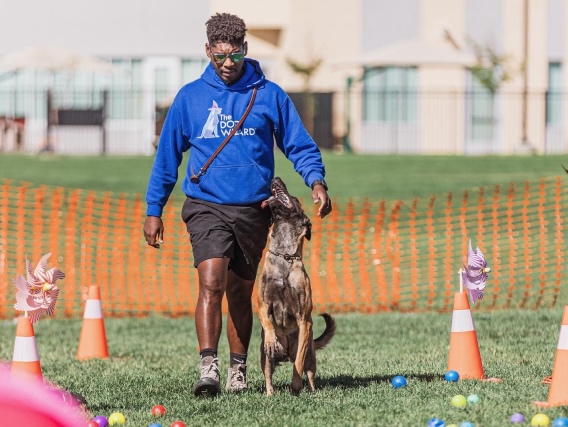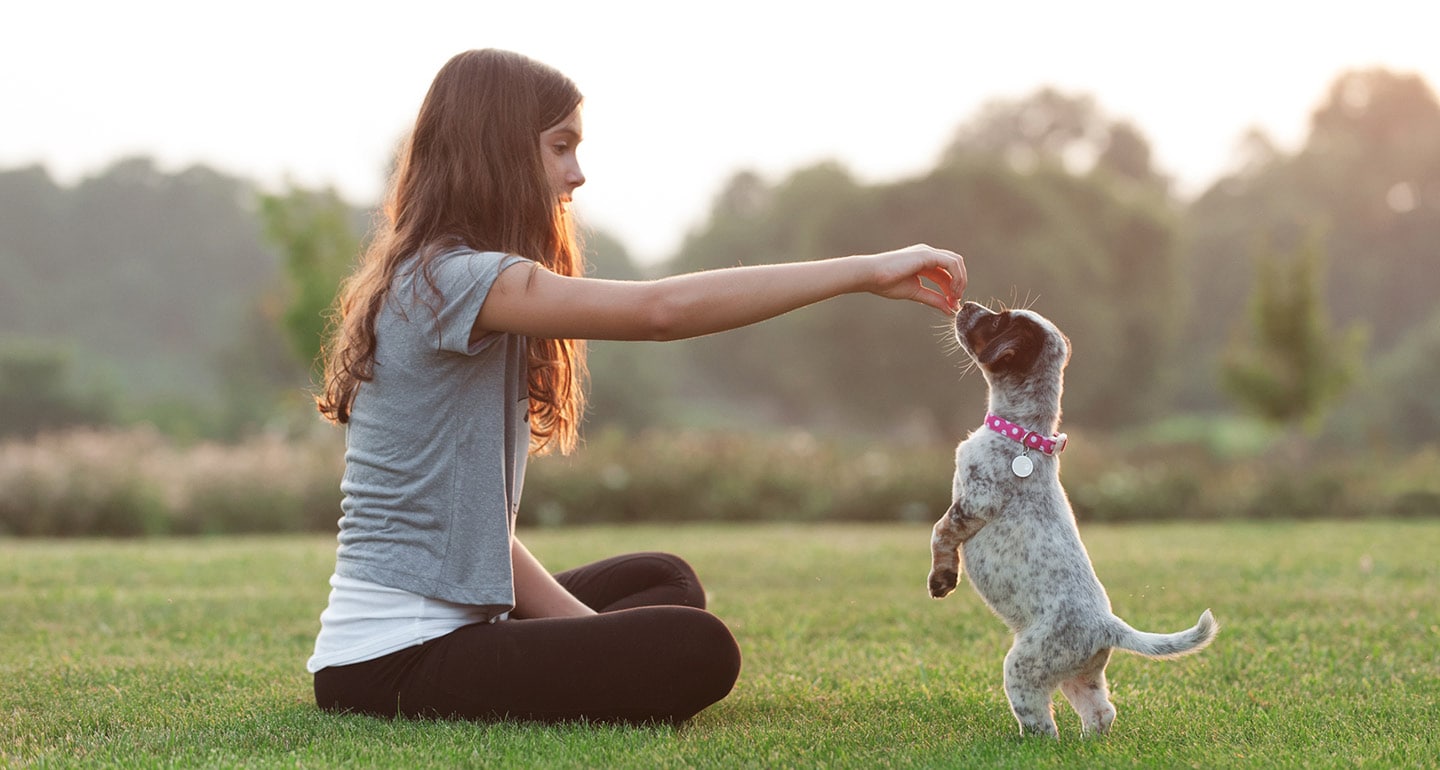Professional Insights on Dog Training Charlotte NC: Transform Your Puppy Today
Professional Insights on Dog Training Charlotte NC: Transform Your Puppy Today
Blog Article
Unlock Your Pet's Prospective: Proven Canine Training Strategies for Success
Reliable canine training is a nuanced process that pivots on understanding canine actions and utilizing scientifically backed approaches. By integrating favorable reinforcement, establishing clear commands, and focusing on socialization, pet dog owners can grow an effective connection with their pets.
Recognizing Dog Actions
Understanding pet dog behavior is crucial for reliable training and promoting a favorable connection between canines and their proprietors. An extensive understanding of canine body language, articulations, and social interactions is critical for acknowledging their feelings and demands. Canines interact mostly through non-verbal hints; as an example, a wagging tail may suggest enjoyment, while pinned ears can signify worry or submission.

Moreover, environmental variables play a substantial duty fit a pet dog's actions. Modifications in routine, brand-new surroundings, or the visibility of strange individuals can result in stress and anxiety or anxiousness in pet dogs. Acknowledging these triggers enables proprietors to minimize negative reactions and develop appropriate training strategies.
Inevitably, a deep understanding of pet dog habits lays the foundation for effective training techniques, improving both actions and the general bond in between the canine and its owner. dog training charlotte. This understanding is important for fostering a well-adjusted, satisfied canine buddy
Positive Support Strategies
Effective training counts heavily on positive reinforcement techniques, which have actually been shown to produce substantial lead to forming preferred actions in pets. This approach includes rewarding a pet dog for exhibiting specific habits, thereby boosting the possibility that these habits will be duplicated. Rewards can take different kinds, consisting of deals with, appreciation, toys, or play, relying on what inspires the specific dog.

It is vital to progressively terminate benefits as the dog discovers the actions, transitioning to periodic reinforcement. This approach maintains the behavior with time while stopping dependency on constant incentives. By concentrating on positive support, fitness instructors can grow a trusting relationship with their pet dogs, promoting a healthy and balanced and participating training atmosphere that enhances total obedience and efficiency.
Establishing Consistent Commands
An essential aspect of effective dog training is the establishment of regular commands. Consistency in commands is crucial for efficient interaction between the pet and the instructor. When commands are consistent, pets learn to connect specific words with preferred actions, which accelerates the training procedure and improves understanding.
To develop regular commands, it is vital that all member of the family use the same terminology and motions. As an example, if one person utilizes "rest" while another claims "take a seat," it can produce complication for the pet. Select clear, distinctive words for commands and ensure everybody included in the pet's training complies with these options.
Enhance commands via constant technique, making certain that the pet receives sufficient possibilities to react appropriately. When a pet dog effectively complies with a command, instant positive reinforcement needs to adhere to.
Last but not least, hold your horses. Establishing constant commands takes some time and effort. With commitment and clearness, you will help your dog create a solid understanding of expectations, ultimately resulting in a well-behaved friend.
Socializing and Exposure
Socializing a pet is crucial for cultivating a well-adjusted and positive companion. This procedure includes exposing your pet to a range of environments, individuals, and other pets to establish their social abilities and adaptability. Early socializing, preferably between the ages of 3 to fourteen weeks, is crucial, as it lays find more info the foundation for a canine's future behavior.
Throughout socializing, goal to supply favorable experiences in different setups, such as parks, busy roads, and homes with other pet dogs. Introduce your pet to various stimulations, including audios, views, and scents, making certain that each encounter is satisfying. This direct exposure helps mitigate anxiety and anxiety, paving the means for a much more durable dog.
Involving in regulated informative post group play sessions with various other pet dogs can likewise boost social abilities, teaching your animal suitable interactions and boundaries. Prioritizing socialization will dramatically contribute to your pet's total joy and habits throughout their life.
Conquering Common Educating Difficulties

Canines might battle to concentrate in busy or unknown settings. Gradually desensitize your canine to diversions by beginning training in a quiet environment and slowly introducing more stimulations as they come to be skillful.
Additionally, behavioral issues like jumping or extreme barking can end up being irritating. Address these by educating alternative behaviors, such as sitting calmly when greeting guests. Consistency and patience are important; strengthen preferred habits constantly and prevent abuse, which can cause complication.
Finally, acknowledge that each pet dog is special, and training timelines may vary. Tailor your approach to your dog's specific demands, and look for specialist support if needed. With determination and the best techniques, conquering these challenges can lead to a trained, satisfied canine buddy.
Final Thought
To conclude, opening a pet dog's prospective necessitates a thorough method that includes an understanding of canine actions, the check my site application of favorable support methods, and the facility of constant commands. Early socialization and exposure to diverse settings additionally improve a dog's flexibility and confidence. By addressing usual training difficulties with tailored approaches and persistence, a cooperative and unified connection in between dog and trainer can be fostered, inevitably leading to a mannerly buddy with the ability of prospering in various circumstances.
Effective pet dog training is a nuanced procedure that pivots on understanding canine habits and using clinically backed strategies.Comprehending pet habits is crucial for efficient training and cultivating a positive connection in between canines and their proprietors.Effective training depends greatly on positive reinforcement strategies, which have actually been shown to produce substantial results in shaping wanted behaviors in canines. When commands are consistent, pets discover to link particular words with desired habits, which increases the training process and enhances understanding.
In final thought, opening a dog's potential requires a thorough method that integrates an understanding of canine behavior, the application of positive reinforcement methods, and the facility of regular commands.
Report this page